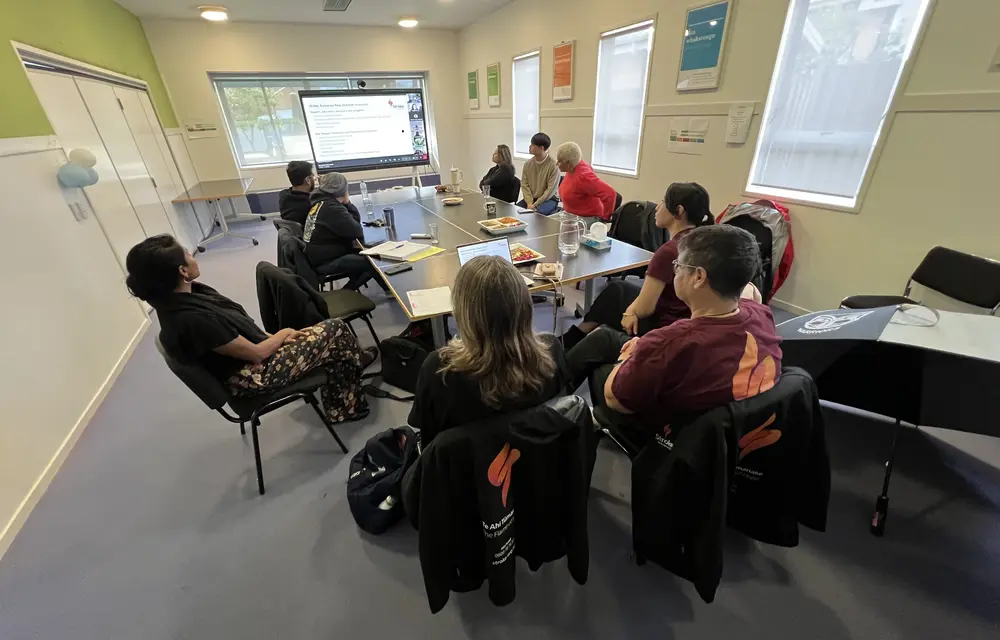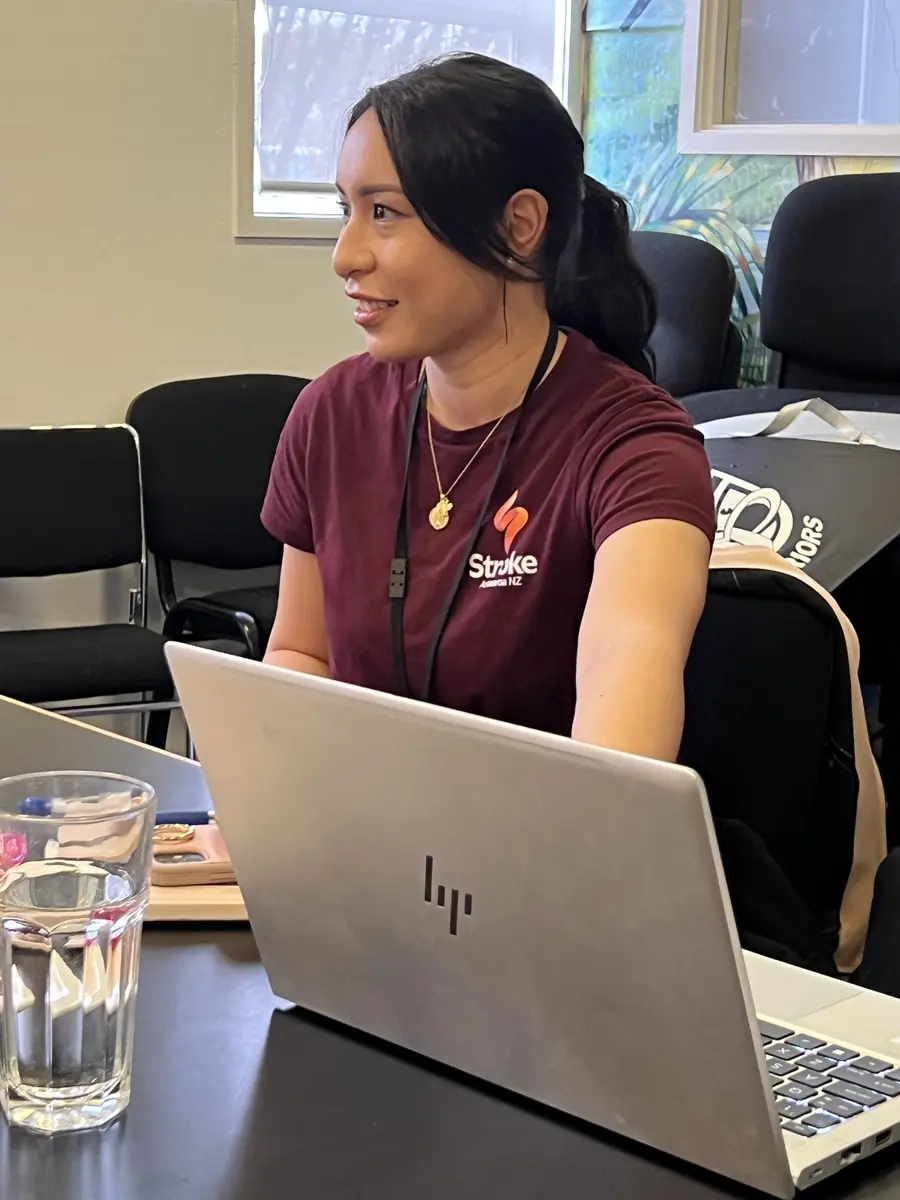Busting the burnt toast theory
There's lots of burning questions about stroke. A special meet with WhatsUp Counsellors aimed to equip those at the frontline of youth work with the right answers to sort the facts from the fiction.

“Is it true that if you smell burnt toast, you might be having a stroke?”
was a question asked at a special gathering of two charities on Thursday 17th July.
Nicky Mayne, General Manager Community Services Stroke Aotearoa New Zealand, says,
“While it might seem like a funny question, you might be surprised at how many times we get asked that!”
Nicky, together with Community Stroke Navigators Elisa Moller (North & West Auckland) and Michelle Newbury-Lee (Central & South Auckland), recently received a warm Mangere welcome from Barnardos Aotearoa and the 0800 WhatsUp Team to help sort out the facts from the fiction concerning stroke.
0800 WhatsUp is a safe place for tamariki and rangatahi to talk. It’s the only national helpline, available seven days a week, where children and young people (aged 5 to 19 years) can chat with a trained counsellor.
This one-hour opportunity to kōrero was to equip frontline youth workers with the right tools and information to make a difference in the lives of young people grappling with stroke.
While the burnt toast theory is a myth, Nicky says there is plenty more misinformation out there.
“Another common one is that you can provide immediate medical care for someone experiencing a stroke. That’s simply not true. There’s nothing you can do. You need to call 111 and seek professional help.”
With limited resources and a stretched health system, Stroke Aotearoa very much relies on the goodwill of partnerships such as with 0800 WhatsUp to make sure that the right information is getting out there – they can’t do it alone.
Perhaps their most important message of the day? Young people needn’t go it alone either.
“Children often take on the role of carer at a young age, and just want to feel that they are validated. They want to be taken seriously but don’t think they’ll be listened to,”
explains Dillan, 0800 WhatsUp Counsellor.
Kelly, another 0800 WhatsUp Counsellor, whose dad has had several major strokes and has difficulty communicating, said that one of the best lessons she learnt was to be patient and listen to him. (Rather than focus on any changes in his personality and what he was doing wrong).
“I came to realise that he is still the same person. I decided I’d make him the centre of my attention,”
It’s through these shared experiences and learning, that both charities are bettering the lives of young people in a time of significant need – ensuring there’s one less worry when you burn your toast!
